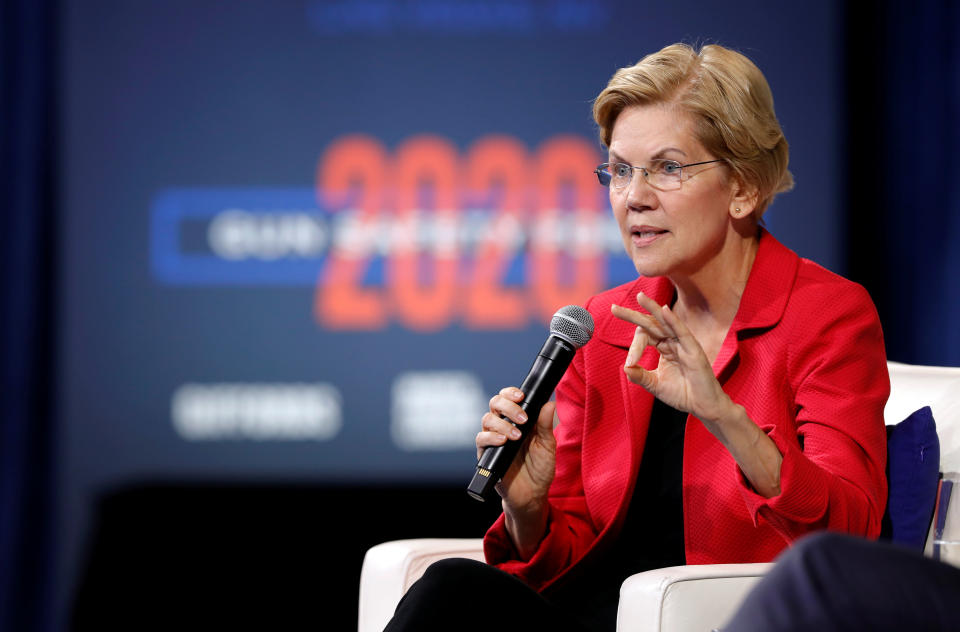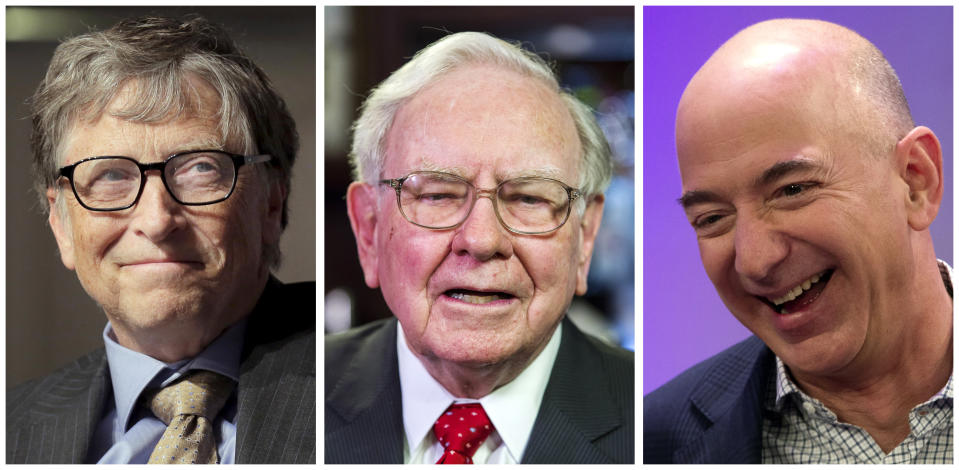Warren's wealth tax would solve economic inequality, says economist Gabriel Zucman
Taxing the rich to help the poor and middle class has defined the presidential campaigns of Senators Elizabeth Warren and Bernie Sanders.
Skeptics of the proposal argue that a wealth tax of this magnitude is impractical, and will not generate the revenue that Senator Warren and supporters anticipate. But French economist Gabriel Zucman, an early proponent of the tax, argues otherwise.
Zucman, now author of the book “The Triumph of Injustice: How the Rich Dodge Taxes and How to Make Them Pay,” joined The Final Round to discuss the profound effect the tax system has on American economic inequality, and how a wealth tax could change that.
‘The tax system is critically important’ to eradicating economic inequality
On Monday, Senator Elizabeth Warren unveiled an education plan that would dramatically increase federal funding for public schools over the next decade, siphoning money raised from her proposed wealth tax to cover the plan’s $450 billion cost. It is one of many proposals developed by the Massachusetts senator that depend almost wholly upon the success of her controversial wealth tax, which would impose a 2% annual tax on household net worth between $50 million and $1 billion.
Zucman said he believes such a tax could also be a solution to economic inequality exacerbated by the current U.S. tax system.
“Financial deregulation; the collapse of the minimum wage; higher college costs; the declining role of unions. All of these things have mattered a lot [to American economic inequality],” Zucman said. “But, when you try to look at the income and the wealth of the very rich, the tax system is critically important. The U.S. used to have the most progressive tax system in the world, with top marginal income tax rates of more than 90% in the post-World War II decades, to estate tax rates to of close to 80% from the 1930s to the 1980s, and then you had a dramatic change in the 1980s. The top marginal income tax rate was reduced to 28%, and today, in 2018, for the first time in the last hundred years, billionaires have paid a lower tax rate – all taxes included – than the middle class and the working class. They pay 23% of their income in taxes; the rest of the population pays in between 25% and 30% of their income in taxes.”

Why ‘just a small wealth tax’ can address systemic inequality in the U.S.
“A tax of 2% on the wealth above $50 million and 3% above $1 billion. That tax alone would double the effective tax rate of billionaires, from 23% today to 46%,” says Zucman. “Second, it would generate a lot of tax revenue – about $2.6 trillion over the next ten years. That’s money that can be used for childcare, for healthcare, for student debt relief, which would make it possible for the rest of the population to see their income grow more, and to see their wealth grow. So, it cannot fix all the problems; but just a small wealth tax on a tiny fraction of the population, because inequality has increased so much and there is so much wealth at the top, it can go some way towards addressing inequality.”

‘The solution is lowering taxes for the working class’
Zucman says Senator Warren’s wealth tax would alleviate the financial burden currently carried by the American working and middle classes.
“I’m very much for reducing taxes on the working class and part of the middle class,” says Zucman. “For the rich, if you reduce their taxes, what are you going to have? Today, they pay 23% of their income in taxes, which means their wealth mechanically grows. Wealth generates income; income stays at a high rate...there’s no barrier. The snowball gets bigger and bigger...the solution is lowering taxes for the working class, but much higher taxes for the very, very rich – just like the U.S. used to do for most of the 20th century.”
As economists continue to weigh in on the proposal and its potential consequences throughout the 2020 Presidential election, and beyond, such debate, says Zucman, is “perfectly legitimate.”
“It’s good to have debate...we don’t expect that minds are going to change in one day, or in a week. But gradually, yes – I think there’s going to be an evolution,” says Zucman. “And more importantly, I think the role of economists is not to say, ‘things should be done this way,’ or ‘that way,’ or ‘the optimal tax rate is 70%.” No. The way I view myself is more like a plumber; you have leaks in the tax system, things that don’t work well. We can fix the leaks. If there is a popular, a democratic demand for redistribution, we can make taxes work. That’s one way that we, economists, can be useful to society.”
Olivia Balsamo is a producer at Yahoo Finance.
Read the latest financial and business news from Yahoo Finance
Follow Yahoo Finance on Twitter, Facebook, Instagram, Flipboard, LinkedIn, and reddit.